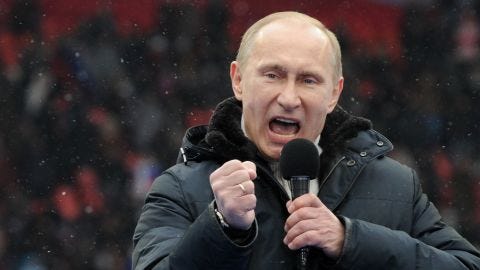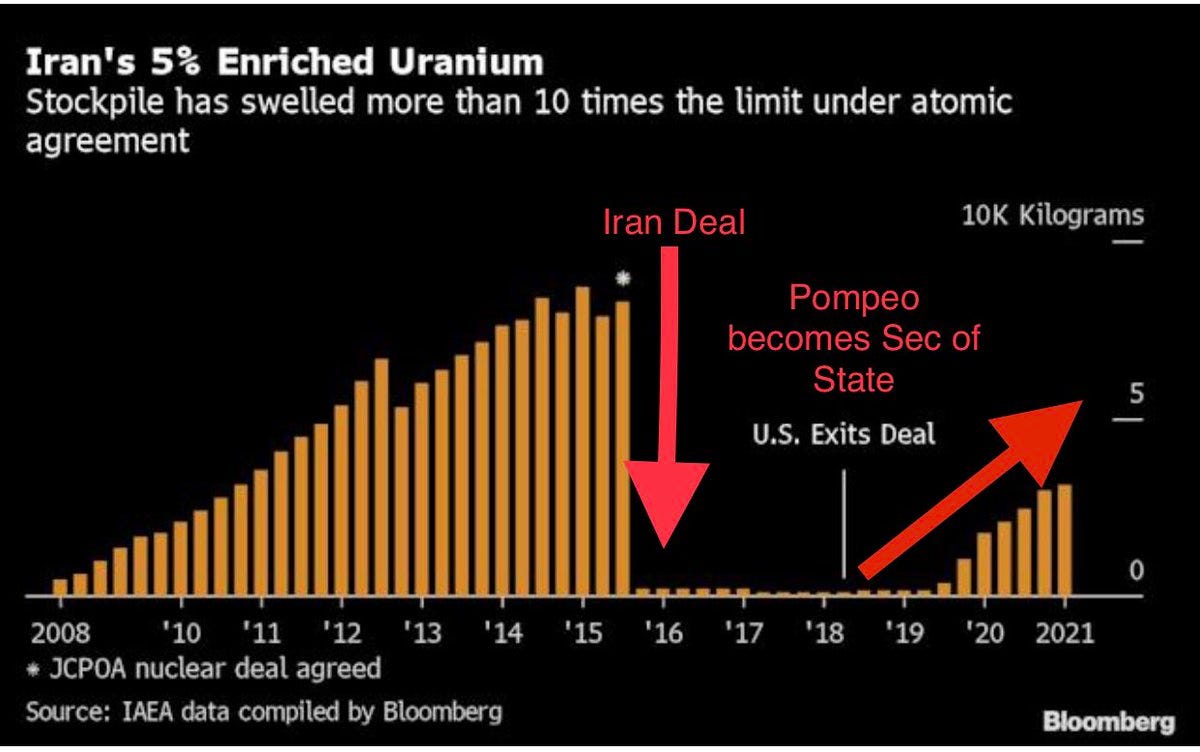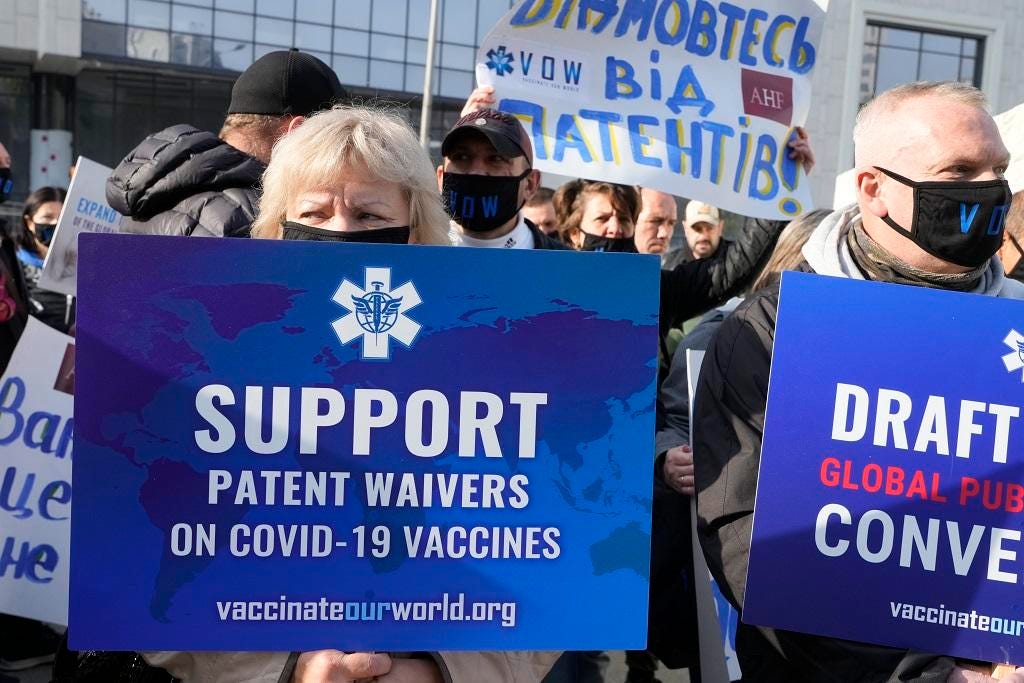Earthling: Are Russian intellectuals rallying around Putin?
Plus: Musk vs. Mars; Pompeo punctured; Israeli laser gun; Good/bad news on climate change, etc.
Are traditionally liberal Russian intellectuals rallying around Vladimir Putin’s war in Ukraine? Anatol Lieven of the Quincy Institute sees evidence that they are—and that they’re embracing a larger Putin cause as well.
Writing in Responsible Statecraft, Lieven notes that Dmitri Trenin, a historian who was director of the Carnegie Moscow Center until the Russian government shut it down in April, is now saying that Russia faces an existential threat from the US-led West—and must wage a “hybrid” war in response. That means working with non-Western nations—in particular, China—to build an alternative to the US-led international order.
Lieven, who has known Trenin since the 1990s, says he “was for many years one of the most important pragmatic Russian voices in support of cooperation with the West and the ‘westernization’ of Russia.” So the article in which Trenin lays out his new views (based on a speech he delivered at a prominent forum) is evidence “of a consolidation of the Russian intellectual elites in support of the war effort in Ukraine.”
This support, Lieven believes, doesn’t grow “out of a desire to conquer Ukraine (many of the figures joining this new consensus were strongly opposed to the invasion and loathe Putin), but out of an increasingly strong feeling that the United States is trying to use the war in Ukraine to cripple or even destroy the Russian state, and that it is now the duty of every patriotic Russian citizen to support the Russian government.”
According to Lieven, many Russian intellectuals were deeply pro-Western when the Cold War ended, but a series of events—including NATO expansion, the Iraq War, and Ukraine’s western-backed 2014 revolution—fostered skepticism about the West. It’s in this context that the forceful western response to the Ukraine invasion is being assessed. Trenin writes that the West is “striving to exclude Russia from world politics as an independent factor, and to completely destroy the Russian economy.”
Lieven believes that Russian hopes for co-operation with France and Germany “could revive if these governments seek a compromise peace in Ukraine—with or without the United States.” Failing that, “Trenin’s article indicates that not just Putin’s inner circle, but much of the wider Russian establishment, will approach the war in Ukraine in a spirit of grim determination, at least until there is a possibility of a peace agreement that meets basic Russian conditions.”
As Iran’s stockpile of highly enriched uranium grows, Trump Secretary of State Mike Pompeo wants you to know that he is the last person you should blame. Pompeo tweeted this week that the Trump administration had put the clamps on Iran’s nuclear program, but, because “Biden went back to the old policies,” Iran is closer to getting the bomb. Writing in Responsible Statecraft, Ryan Costello sets the record straight: The problem is that Biden didn’t go back to the “old policies”—the Iran nuclear deal of 2015, which Trump exited in 2018. Pompeo, Costello notes, is “one of the officials most responsible for unraveling hard-fought international restraints on Iran’s nuclear program.”
On Twitter, Assal Rad of the National Iranian American Council put the point in visual form by taking a red pen to a Bloomberg News graphic:
Over the next 28 years, an average of 35,000 Earthlings per year could relocate to Mars. If that figure sounds high to you, then you’re not the visionary that Elon Musk is! But you’re not alone: The futurist George Dvorsky, writing in Gizmodo, takes a critical look at Musk’s claim—made two years ago and seemingly reaffirmed in an interview two months ago—that we can get a million people to Mars by 2050.
Dvorsky deems Musk’s timeline “ludicrous,” citing a long list of unanswered questions—like, say, how to supply the lucky space colonists with food and water. “Musk, whether intentionally or unintentionally, is peddling a false view of humanity’s short-term potential.” Given the impact the words of the world’s richest man can have, says Dvorsky, Musk needs to start taking his responsibility “far more seriously than he does.”
Writing in The American Prospect, Robert Kuttner takes Biden to task for not following through on his professed support for waiving intellectual property rights for Covid-19 vaccines. This Sunday, WTO members will discuss that issue in Geneva, but so far the US and Europe have blocked a waiver that was proposed in 2020 by South Africa and India. Comparing Biden’s performance with another US president’s handling of treatments for HIV/AIDS, the progressive Kuttner writes: “the Biden administration has failed to act with the clarity and resolve of George W. Bush.”









